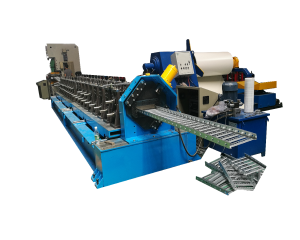Cold-formed steel (CFS) is quickly becoming the most desired building material for developers looking to maximize their ROI. Stable, durable, cost-effective, and architecturally flexible — CFS has long been the framing component of choice in commercial construction. Created by roll-forming components from sheets of structural quality steel, at room temperature, CFS offers many advantages.
Strength
According to ScienceDirect, CFS is about 20% stronger than hot-rolled steel.
Much of the strength of CFS comes from the strain hardening that occurs as the rollers compress. The great pressure under which cold rolled steel is formed makes it impervious to rot, mold, mildew, and damage caused by insects, termites, and vermin.
It’s this durability that makes CFS so ideal for construction. Cold-formed steel doesn’t split or shrink, nor does it expand or contract with moisture content. Plus, steel studs don’t bow, twist, or bend.
Add this inherent sturdiness to the results of a study, done by the NAHB, that shows that the zinc coating on steel framing materials can protect against corrosion for hundreds of years, and that’s one incredibly stable structure!
Sustainability
Each piece of CFS contains a minimum of 25% recycled content; steel framing typically contains 67% recycled material – all of it is 100% recyclable. Additionally, with CFS, the sizing is accurate, and the framing is exact; this uniformity in manufacturing results in less waste because the scrap is completely recycled, (which also saves money on hauling fees.)
Remarkably, CFS is beneficial to the environment as well as allergy and asthma sufferers. Cold-formed steel doesn’t emit volatile organic compounds; fewer toxins in the air translates to less respiratory irritation for all.
Another benefit for industry professionals — because steel is 100% recyclable — steel construction aids in obtaining LEED certification for projects
Simplicity
Another advantage CFS brings is to the actual construction process.
Because cold-formed steel is light, shipping and handling are easy. Moreover, CFS products are roll-formed into the exact shapes and sizes required — with detailed labeling of all pieces — making assembly fast and foolproof. The lightweight and uniform manufacturing standards also make CFS ideal for trusses and panels that are easily installed with fewer framers.
Steel framing even speeds up construction time because CFS panels come with pre-punched holes, allowing for the rapid running of electrical wires, plumbing, and mechanical installation.
Furthermore, the strength of cold-formed steel translates to less material, so there are fewer studs to install, (think stick framing on 24” centers vs the traditional 16”.)
Suitability
CFS framing already dominates the market for interior, non-loadbearing partition walls in commercial construction. Advanced technological advancements, however, now make cold-formed steel suitable for a multitude of structural applications including:
- Low to mid-rise construction
- Multi-unit buildings
- Residential housing
- Student dormitories
- Hotels
- Assisted living facilities
- Relief housing
- Post frame structures
- Warehouses
- Storage Sheds
- Tiny houses
- Garages
- Man Caves/ She Sheds
Post time: Oct-18-2022

